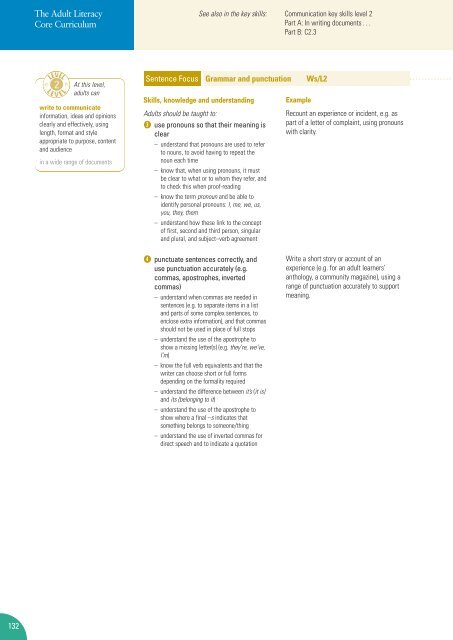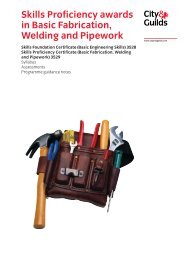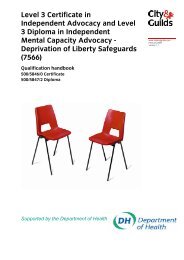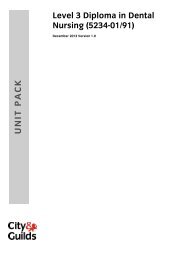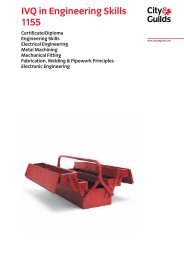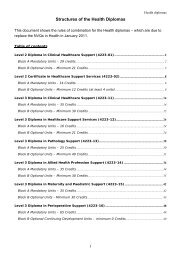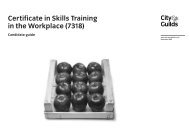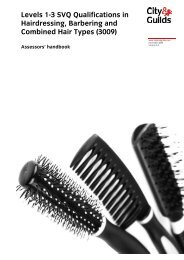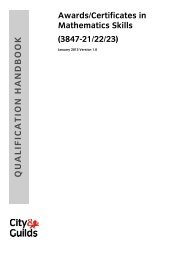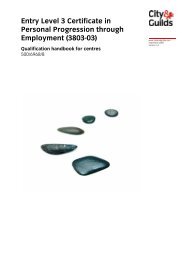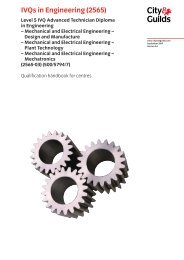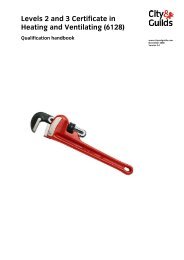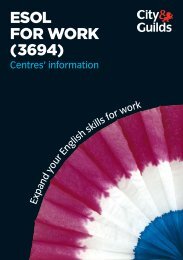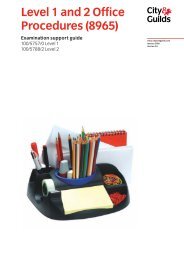Adult Literacy Core Curriculum - Nationally developed Skills for Life ...
Adult Literacy Core Curriculum - Nationally developed Skills for Life ...
Adult Literacy Core Curriculum - Nationally developed Skills for Life ...
Create successful ePaper yourself
Turn your PDF publications into a flip-book with our unique Google optimized e-Paper software.
132<br />
The <strong>Adult</strong> <strong>Literacy</strong><br />
<strong>Core</strong> <strong>Curriculum</strong><br />
At this level,<br />
adults can<br />
write to communicate<br />
in<strong>for</strong>mation, ideas and opinions<br />
clearly and effectively, using<br />
length, <strong>for</strong>mat and style<br />
appropriate to purpose, content<br />
and audience<br />
in a wide range of documents<br />
Sentence Focus Grammar and punctuation Ws/L2<br />
<strong>Skills</strong>, knowledge and understanding<br />
<strong>Adult</strong>s should be taught to:<br />
3 use pronouns so that their meaning is<br />
clear<br />
– understand that pronouns are used to refer<br />
to nouns, to avoid having to repeat the<br />
noun each time<br />
– know that, when using pronouns, it must<br />
be clear to what or to whom they refer, and<br />
to check this when proof-reading<br />
– know the term pronoun and be able to<br />
identify personal pronouns: I, me, we, us,<br />
you, they, them<br />
– understand how these link to the concept<br />
of first, second and third person, singular<br />
and plural, and subject–verb agreement<br />
4<br />
See also in the key skills: Communication key skills level 2<br />
Part A: In writing documents . . .<br />
Part B: C2.3<br />
punctuate sentences correctly, and<br />
use punctuation accurately (e.g.<br />
commas, apostrophes, inverted<br />
commas)<br />
– understand when commas are needed in<br />
sentences (e.g. to separate items in a list<br />
and parts of some complex sentences, to<br />
enclose extra in<strong>for</strong>mation), and that commas<br />
should not be used in place of full stops<br />
– understand the use of the apostrophe to<br />
show a missing letter(s) (e.g. they’re, we’ve,<br />
I’m)<br />
– know the full verb equivalents and that the<br />
writer can choose short or full <strong>for</strong>ms<br />
depending on the <strong>for</strong>mality required<br />
– understand the difference between it’s (it is)<br />
and its (belonging to it)<br />
– understand the use of the apostrophe to<br />
show where a final –s indicates that<br />
something belongs to someone/thing<br />
– understand the use of inverted commas <strong>for</strong><br />
direct speech and to indicate a quotation<br />
Example<br />
Recount an experience or incident, e.g. as<br />
part of a letter of complaint, using pronouns<br />
with clarity.<br />
Write a short story or account of an<br />
experience (e.g. <strong>for</strong> an adult learners’<br />
anthology, a community magazine), using a<br />
range of punctuation accurately to support<br />
meaning.


